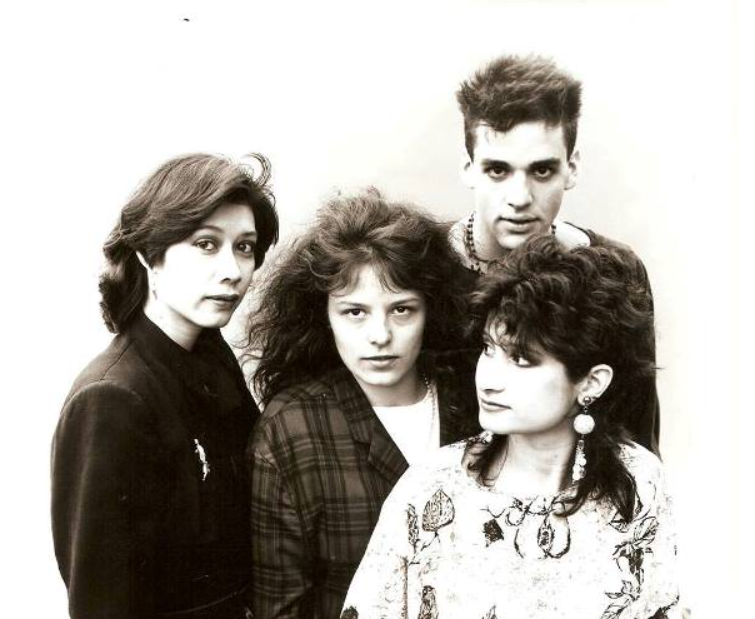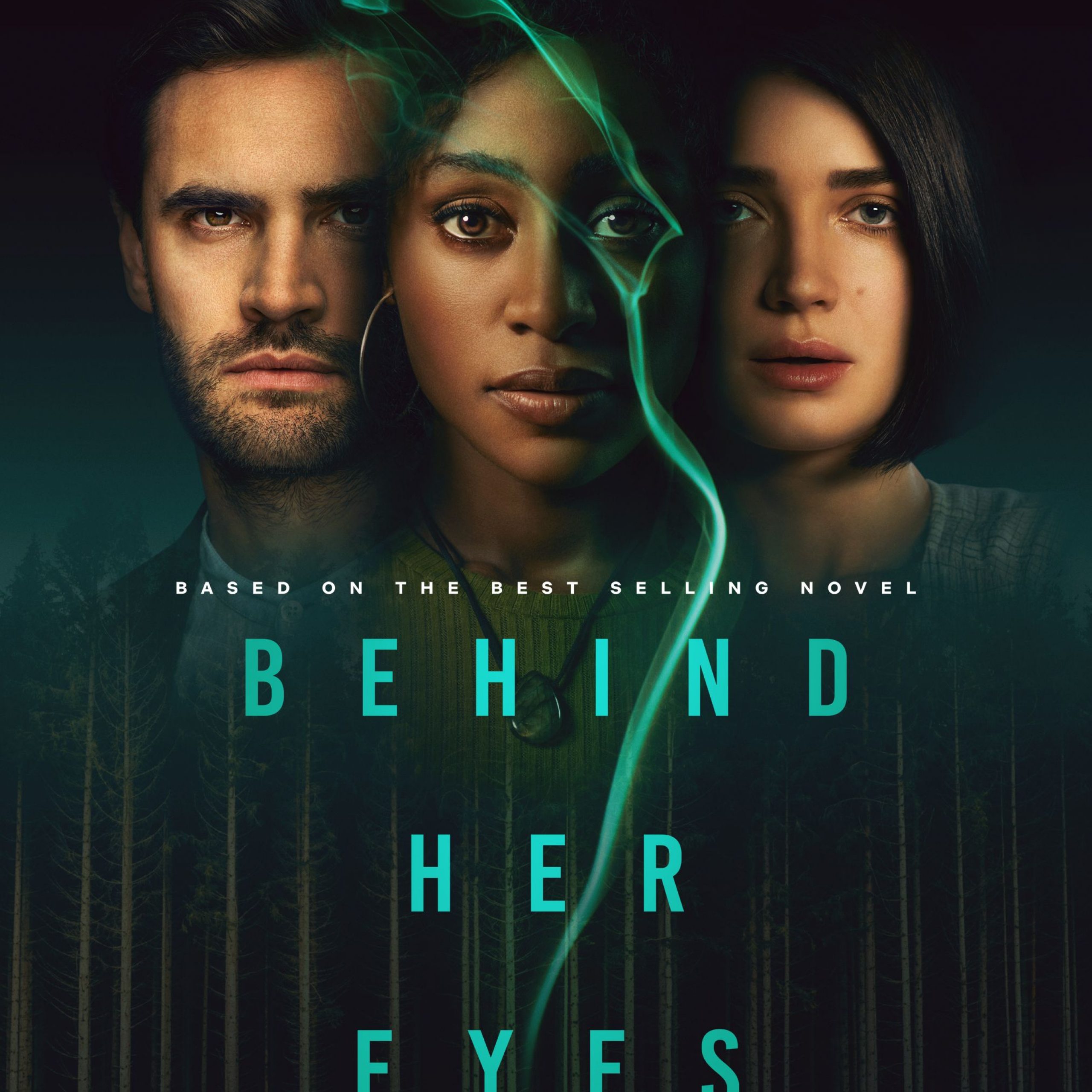By Cormac Stephen Synnott, Year 12
As is probably the case with a majority of bands, the American synth-pop group Book of Love is now thought of mostly in connection with a miscellaneous collection of singles rather than individual albums. It is reasonable to say that this is not fair. While hits such as “Boy” and “I Touch Roses” undoubtedly captured the band’s success, it is unfortunate and unwarranted not to acknowledge the brilliance of their albums.
The band’s debut album, simply titled Book of Love, is of particular interest, as it is generally seen as their best work. However, music is only half the reason it remains so interesting; the other reason is that almost 40 years after its release, the album is still immensely relevant in terms of message and commentary.
Before examining the album Book of Love, it is important to look at the band itself. Formed by high school friends Susan Ottaviano and Ted Ottaviano—who, despite sharing a last name, are unrelated—along with Jade Lee, who met Susan Ottaviano in college, and Lauren Roselli, who met Ted Ottaviano in college, the band’s formation is generally dated to May 1983.
The band’s first published song was 1983’s Henna, which was released on a compilation album produced by Susan Ottaviano, with Jade Lee designing the sleeve for said compilation. However, the band’s true breakout would come the next year with Boy. The demo for Boy was given to Ivan Ivan, a disc jockey who had recently produced the dance hit The Dominatrix Sleeps Tonight. Ivan Ivan then passed the single on to Seymour Stein, president of Sire Records, who went on to sign Book of Love.
However, this signing is not the only reason Boy is significant—there are many others. Firstly, Boy was the group’s first hit, and it remains one of their most successful and famous songs. More importantly, the song covers topics of gender and sexuality, two motifs that feature heavily in the album Book of Love and are key factors in the band’s continued relevance.
The track, released as a single in 1985, revolves around a female protagonist’s romantic desires toward a homosexual man. As such, themes of sexual frustration and gender-related issues are highly relevant, with excerpts such as:
“I want to be where the boys are / But I’m not allowed / I wait outside of the boy’s bar / I wait for them to all come out” and “It’s not my fault / That I’m not a boy / It’s not my fault / I don’t have those toys”
Perfectly illustrating the protagonist’s frustrations. Though the song was sung by Susan Ottaviano, it was written by Ted Ottaviano. In a 2016 interview with The Village Voice, Ted Ottaviano stated, “Our first song, ‘Boy,’ is actually written about Boy Bar, which was a very exclusive gay club in the East Village.” This once again highlights Book of Love’s past and present involvement and relevance within the LGBTQ+ community.
Musically, the song’s defining feature was its use of bells, which, along with synthesizers, created a melodic yet minimalistic sound, despite the fact that only two instruments were used. With all that said, it is also important to acknowledge the commercial success of Boy; it peaked at No. 7 on the U.S. Club Play chart in 1985 and has since had over 15 versions released, with the song reaching No. 1 on the same chart in 2001.
After the success of Boy, the band quit their day jobs to focus entirely on their music. While promoting Boy, Book of Love met Depeche Mode at a party (or so the story goes) and were offered a spot as openers on the North American leg of their Some Great Reward tour, which they accepted. This gave the band a significant boost in exposure, as by 1985, Depeche Mode were already well established as major players in the electronic scene.
Upon completing their shows with Depeche Mode, the band returned to New York and recorded Happy Day, a song that would feature on the U.K. single release of Boy. After this, the band recorded I Touch Roses, which would go on to be their most successful song. Peaking at No. 8 on the U.S. Billboard Hot Dance Club Play chart and No. 60 on the Canadian RPM Top Singles chart, the song’s success incentivized Sire Records to allow Book of Love to record a full-length album.
This album, released on April 1, 1986, was 45 minutes long and featured 12 songs, most of which were written by the two Ottavianos. Importantly, the album included previously released singles such as Boy and I Touch Roses. Musically, these two singles exemplify the album well—keyboard- and percussion-heavy, but not in a way that feels overwhelming. However, what sets the album apart from other synth/electronic pop albums of the era is, as mentioned, the direct manner in which it addresses its socio-political background.
The first song on the album, for instance, is Modigliani. Written by Susan Ottaviano, Ted Ottaviano, and Jade Lee—all of whom studied art at university—the track serves as a tribute to the Italian artist Amedeo Modigliani. In a 2008 interview with Pop Dose, Ted Ottaviano stated, “Amedeo Modigliani had always been the band’s own version of a rock star. After all, we were all art school students.”
This track is interesting as it pays tribute to the band’s background in a different way than Boy. Rather than referencing New York’s exclusive gay clubs, it draws from the band members’ shared passion for art. This demonstrates that Book of Love’s inspiration and story extend beyond the undeniably important role of clubs and gender/sexuality-linked matters.
However, this is not to say that Book of Love abandoned those themes. As Susan Ottaviano stated in a 2019 interview for OutSmart, “There were people all over the country feeling different, feeling ‘other.’ Music was their only outlet for that. We continue to meet fans for whom the music meant so much during that time [when they were] feeling different and coming out—LGBTQ people, and also people who felt different in the small towns in which they grew up. Those people have always had a special feeling about Book of Love. That’s great with me, because that’s what music did for me. It’s great to pay it forward.” This highlights that Book of Love has always been aware of, and to some extent inspired by, their fanbase, particularly within the LGBTQ+ community.
This is crucial in understanding how Book of Love remains relevant today. Their themes and messages remain significant despite the passage of time. For example, in the 2025 film Companion, the song Boy is used in a way that reinforces its themes of gender roles and control within relationships. Spoiler alert: The film follows Iris (played by Sophie Thatcher), a companion robot, as she attempts to escape her programmed subservience to her partner/owner, Josh (played by Jack Quaid). The song is used twice—once at the beginning of the main action and again during the denouement—both times aligning with the film’s themes of power dynamics in relationships. That a film released in 2025 can so naturally incorporate a Book of Love song, maintaining its intended meaning despite the 39-year gap, is a testament to the band’s timelessness.
After their self-titled debut, Book of Love released three more albums before disbanding in 1994. Since 2001, however, they have reunited for shows and tours, and since 2013, they have been working on new material. However, Book of Love remains most interesting for the issues and themes they addressed. Their songs about gender and sexuality remain just as poignant nearly 40 years later, and the conversations they sparked continue to be as crucial today as they were back then.



